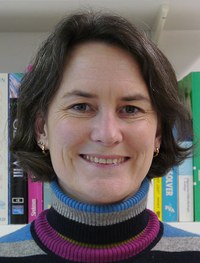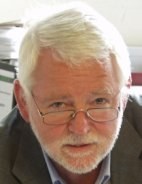Biochemie
-
"Die Unerschöpflichkeit der molekularen Mechanismen, die unser menschliches Leben steuern, ist wirklich atemberaubend."
Salome Barbakadze
- Institut für Biochemie
-
(deutsche Version siehe weiter unten)
The Institute of Biochemistry teaches biochemistry for students of biology, chemistry and food chemistry. The research focus of the two research groups are proteins and protein complexes that copy, cut, modify and repair the genetic information (DNA and RNA) and are important for gene expression. The research is not limited to individual molecules, but considers them as components of larger networks or molecular machines that are to be understood and, in some cases, specifically modified for biotechnological and biomedical purposes.
Das Institut für Biochemie lehrt Biochemie für Studenten der Biologie, Chemie und Lebensmittelchemie. Der Forschungsschwerpunkt der beiden Forschungsgruppen sind Proteine und Proteinkomplexe, die die genetische Information (DNA und RNA) kopieren, schneiden, verändern und reparieren und für die Genexpression wichtig sind. Die Forschung beschränkt sich nicht auf einzelne Moleküle, sondern betrachtet sie als Bestandteile größerer Netzwerke oder molekularen Maschinen, die man verstehen und zum Teil gezielt für biotechnologische und biomedizinische Zwecke verändern will.
- Prof. Dr. K. Sträßer
- The overall goal of our lab is to understand the mechanisms of eukaryotic genome expression and maintenance. We focus on the question, how the different steps of gene expression, mainly transcription and nuclear mRNP formation, are interconnected providing efficiency and accuracy to this fundamental cellular process. Furthermore, we investigate the molecular mechanism of enzymes and enzyme complexes that cut, modify and repair DNA. To achieve our goals, we employ a multitude of modern biochemical, genetical, molecular biological as well as computational techniques.
- Dr. Cornelia Kilchert
-
W2-Biochemie Vertretung
We explore mechanisms of post-transcriptional gene regulation in the unicellular eukaryotic model organism S. pombe and use molecular biology and biochemical methods to study ribonucleoprotein complex remodelling and the regulation of RNA decay in the cell nucleus.
- Prof. Dr. A. Bindereif
- The research interests of Prof. Dr. Bindereif focussed on mRNA splicing in the human, zebrafish, and trypanosome systems. Specifically, his group studied pathways and networks of alternative splicing regulation, combining RNA biochemistry, genomewide approaches, and RNA bioinformatics.
- Prof. Dr. A. Pingoud
- Prof. Dr. Alfred Pingoud war bis März 2013 der Leiter des Instituts für Biochemie. Am 30.7.2015 verstarb Prof. Pingoud.




